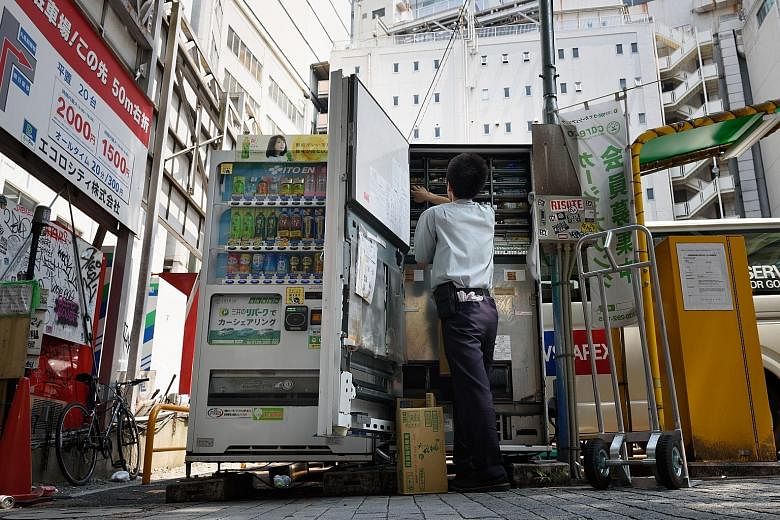TOKYO • Japan's best run of growth in a decade looks set to stretch into next year, with data yesterday showing most factories and consumers stepping up a gear, giving policymakers more reasons to discuss an end to crisis-era stimulus.
Industrial production marked its first back-to-back months of increases this year, with a 0.6 per cent rise last month following a 0.5 per cent gain in October, the government said. Factories are churning out memory chips for smart phones and semiconductor manufacturing equipment to fill orders from Asia and North America.
Japan's long-cautious consumers are also spending more on electronics, cars and fuel, numbers showed.
Retail sales last month rose 2.2 per cent from a year ago, better than the 1.2 per cent predicted by economists. "Consumer spending is doing well, supported by rising stock markets," said Mitsubishi UFJ Morgan Stanley Securities' senior economist Hiroshi Miyazaki. "The Bank of Japan's policy focus is on interest rates, so it is only natural to question its purchases of risk assets."
Manufacturers project output will jump 3.4 per cent this month but then drop 4.5 per cent in January, suggesting some moderation.
The numbers add to data showing Japan's economy is in its best shape in more than a decade. The jobless rate is at a 24-year low, exports have risen every month this year, business investment is up for four straight quarters and gross domestic product has expanded every quarter for nearly two years.
Japan's stock market, meanwhile, has rallied more than 20 per cent this year to reach 26-year highs, which has also boosted consumer sentiment.
The surprisingly strong growth in recent months prompted some BOJ board members to raise the prospect of reducing the central bank's massive stimulus, a summary of opinions from last week's meeting showed yesterday. Such policies were aimed at jolting Japan out of deflation but some board members are encouraging debate about raising rates or lowering purchases of exchange-traded funds.
If the outlook for prices and the economy improves, the BOJ will need to consider whether "adjustments in the level of interest rates will be necessary," a member said.
Another member said the BOJ should examine the policy effects and possible side effects of ETF buys because of rising stock prices and earnings. The BOJ buys long-term government debt to keep 10-year yields around zero and also buys ETFs, traded on the stock market, raising its holdings by some 6 trillion yen (S$71 billion) a year.
It is clear the economy's strength has spurred debate about when and how to end the bank's aggressive monetary easing, which includes buying massive amounts of government bonds, stocks and other assets to keep interest rates low and flood the market with money to spur inflation.
Inflation, however, remains stubbornly low, with the core consumer price index up 0.9 per cent last month, data this week showed, far from the BOJ's target of 2 per cent.
REUTERS

